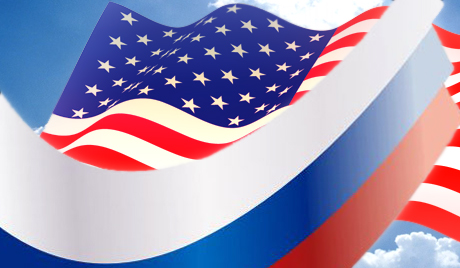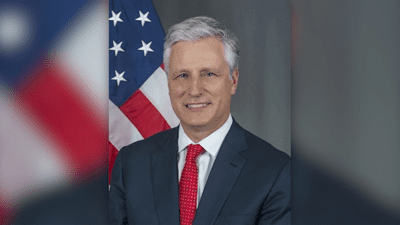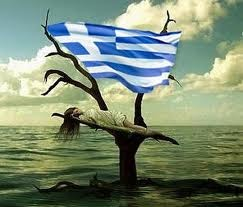BY JAMES DURSO, ΤHE HILL
The Cold War was never won or lost; it just ended one day. Who even remembers where they were on December 3, 1989?
As the Cold War ended, the U.S. forswore a demand for unconditional surrender, thanked God it was over, and thought about how to spend the peace dividend. The message Russia took away was: We didn’t lose.
And so, after the chaos of the Yeltsin years and “shock therapy,” Vladimir Putin ascended to the Russian presidency. Buoyed by high oil prices and the network of siloviki, he resumed the task of every Russian ruler since Peter the Great: securing the periphery.
Putin’s secure periphery won’t necessarily involve physical occupation of neighboring states. Russia’s goals can also be achieved by political subversion and using information warfare as a political warfare tool to create unsettled conflicts. As to what the Russians want to secure, it’s no secret – just look at a map.
The East European Plain covers the Baltics, Belarus, Ukraine, Moldova, Romania, and European Russia and is the traditional invasion route to Russia used by the Golden Horde, the Swedish Empire, the Grande Armée, and the Third Reich. Russia is practically landlocked, has no ready access to the oceans, and its population centers, agricultural belt, transportation system, and industrial assets are concentrated West of the Urals – on the East European Plain.
Russia’s fear of invasion from the West probably originated in the 1200s and is captured in the lamentation, “for our sins, unknown tribes [Mongols] came” in The Chronicle of Novgorod. Russia will act to extend its borders, but the use of political warfare means it can stay below NATO’s Article 5 threshold and, when accused of hacking and stealing emails or whatnot, can direct the court’s attention to Exhibit A: Edward Snowden.
Whatever Putin’s motivation – patriotism, paranoia and insecurity, or all the money he allegedly has – his message about protecting Christianity and Russia’s unique culture against a homogenized, relativistic Europe resonates with many more Europeans than Communism ever did. Russia’s project is also aided and abetted by Germany’s feckless welcome of over one million Middle Eastern immigrants, many of whom will never be economically productive and thus be unlikely to assimilate.
So yes, Russia is challenging the U.S., but hyping Russia as a greater threat than the Islamic State, per Sen John McCain (R-Ariz.), is, as they say in Washington, “unhelpful.” It is, however, clever marketing to prepare the taxpayers for Cold War 2.0.
Much of America’s political class and commentariat doesn’t want to admit that the end of the Cold War, watershed that it was, didn’t mean an end to power politics on the continent. Is Russia unpredictable? No, but its tactics are, as we saw in Ukraine and Syria. In the annals of statecraft, that’s hardly cheating. Even worse, at least for some in Washington, Putin might actually believe what he’s saying.
What should we do?
One is prioritize. As Charles de Gaulle asked, are we ready to trade New York for Paris? We probably weren’t then and we sure aren’t now as nothing less than an attack on the U.S. is worth a nuclear exchange. If Russia’s focus is on information operations (IO) and unconventional warfare, we should help the Eastern European states that already have experience with Russian cyber operations. Military maneuvers with allies are always useful, but political warfare is moving to the non-kinetic sphere of weaponized social media. IO adds another layer states must work through before they result to kinetic measures and, if combined with unconventional warfare instead of conventional forces on a tripwire footing, can limit the body count if things heat up.
Secondly, we should swear off “regime change.” A policy of regime change is an excellent way to rally the troops. Unfortunately, the troops it rallies are the opposition’s. Remember, the first rule of regime change is you don’t talk about regime change.
No doubt some senior Russian officials and businessmen are unsatisfied with Putin, but they’re not so unsatisfied that they will cooperate with the U.S., EU or NATO in unhorsing him, especially given our chronic inability to keep a secret. Despite all that “mafia state” chatter, Russia’s leadership will, if they need to, close ranks and clean house to protect themselves and Russia. I’m sure we’ll get along just great with President Sergei Shoigu.
Finally, our leaders should shut up. Calling Russia a “regional power,” as President Obama did, or saying Putin can be a “best friend,” as President Trump did, is counterproductive. We’ll get better results with Russia if we are firm, respectful, unambiguous, and consistent in defending our interests.
James D. Durso (@James_Durso) is the managing director at consultancy firm Corsair LLC. He was a professional staff member at the 2005 Defense Base Closure and Realignment Commission and the Commission on Wartime Contracting in Iraq and Afghanistan, and served as a U.S. Navy officer for 20 years specializing in logistics and security assistance. His overseas military postings were in Kuwait and Saudi Arabia, and he served in Iraq as a civilian transport advisor with the Coalition Provisional Authority. He served afloat as supply officer of the submarine USS SKATE (SSN 578).



















